South Florida homeowners know that the weather isn’t just a background detail; it shapes how we live, maintain our properties, and protect our investments. From sudden storms to long stretches of sun and humidity, our climate can be tough on outdoor structures, especially fences. If you’ve searched for a fencing company near you after seeing wear and tear pop up faster than expected, you’re not alone. Let’s talk about why fences face unique challenges here and what you can do to make yours last.
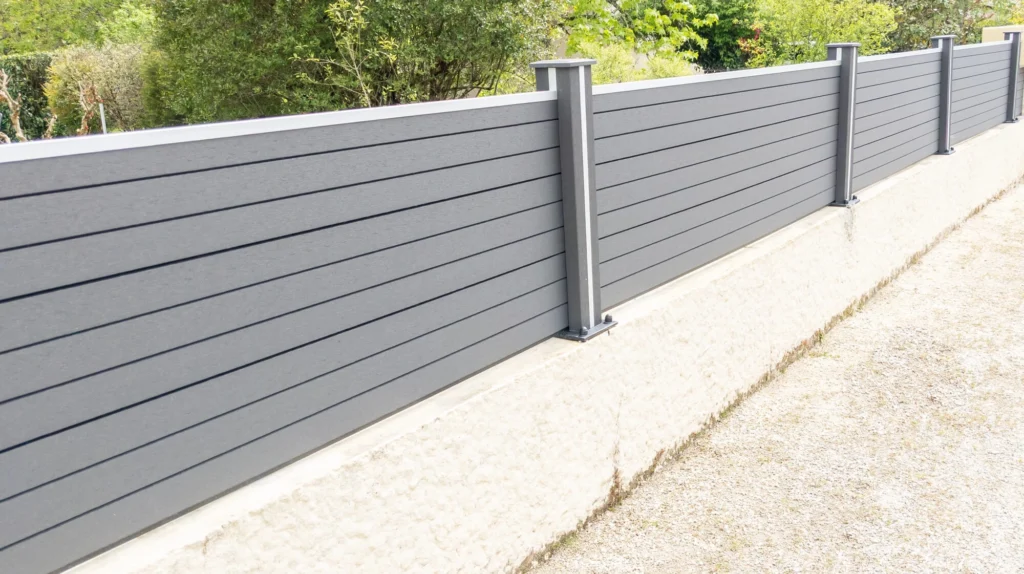
Why South Florida Weather Challenges Fences More Than Most Areas
Living in Palm Beach, Martin, or Broward County means dealing with more than your fair share of tropical heat, salty air, and unpredictable weather patterns. These conditions don’t just affect your roof or lawn—they slowly wear down fence materials, too.
Let’s break down the main elements causing the most damage and how each one impacts different fencing materials.
UV Exposure: The Silent Fence Fader
South Florida averages around 237 sunny days per year, which is perfect for spending time outdoors, but less ideal for your fence. Prolonged sun exposure slowly breaks down materials at a chemical level, even if the changes aren’t visible right away. The effects vary depending on the type of fence you have.
- Wood Fences experience the most noticeable damage. Without a UV-protective sealant, sunlight draws out moisture from the wood fibers, causing them to dry, shrink, and eventually split. Color fades quickly, turning vibrant stains or paint dull and grey.
- Vinyl Fencing, though built to resist UV light, isn’t immune. Over the years, sun exposure can cause brittleness and subtle discoloration, especially if the product lacks added UV inhibitors. Lower-quality vinyl may yellow or chalk sooner than expected.
- Aluminum Fencing performs the best under intense sunlight, particularly when coated with a quality powder finish. That said, cheaper aluminum options or damaged finishes can fade or oxidize over time.
What You Can Do:
Apply UV-resistant stains or sealants to wood fences every year or two. Ask your fencing company about vinyl products with UV stabilizers and request powder-coated aluminum with tested longevity. Shaded areas or strategic landscaping can also reduce direct sun exposure on vulnerable sections.
Humidity and Moisture: Slow but Steady Trouble
Humidity in South Florida doesn’t just make the air feel heavy; it lingers on outdoor surfaces day and night. Combined with frequent rain, this constant moisture gradually wears away at fences, weakening structural integrity and encouraging organic growth.
- Wood Fencing absorbs moisture easily, making it prone to mold, mildew, and rot. Even pressure-treated lumber needs airflow and maintenance to resist fungal spread and softening.
- Vinyl Fencing won’t rot or absorb water, but moisture trapped in tight spaces—like panel seams or hollow posts—creates a breeding ground for algae and mildew. Over time, this causes green staining that’s tough to remove.
- Metal Fencing is less vulnerable to moisture damage if it’s protected. However, when coatings peel or screws rust, water intrusion accelerates corrosion and weakens support structures.
What You Can Do:
Choose rot-resistant or pressure-treated wood for fence builds. Improve airflow between fence slats and keep vegetation trimmed to avoid moisture buildup. Rinse vinyl and metal fences periodically and install post caps to block rainwater from seeping into hollow structures. A local fencing company can offer advice specific to your yard’s drainage and exposure.
Salt in the Air: The Coastal Corrosive
Living near the coast is a dream, but salt in the air is a constant concern for anything metal. Salt accelerates oxidation, especially when it settles on damp surfaces. The closer you are to the ocean, the higher the risk of corrosion.
- Aluminum Fences are commonly used in coastal homes because they don’t rust like iron or steel. Still, if their powder coating is compromised, salt exposure can cause pitting—small surface blemishes that weaken the material over time.
- Galvanized Steel or Chain Link Fencing typically has a zinc coating to resist rust. But when that layer is scratched or wears thin, salt intrusion quickly breaks it down, leading to rust spots and structural weakening.
What You Can Do:
Opt for marine-grade aluminum with corrosion-resistant hardware, especially stainless-steel screws and brackets. Washing your fence with clean water every few weeks helps remove salt film, extending the life of your materials. Work with a fencing company that has experience with coastal installations and knows what materials hold up best long-term.
Wind and Storms: The Sudden Stress Test
In South Florida, wind isn’t just a seasonal inconvenience; it’s a powerful force that regularly tests the strength of your fencing system. While hurricanes are the headline threat, even strong summer gusts or thunderstorms can expose weaknesses in fence construction.
- If the posts are shallow or unreinforced, Wood Panels are vulnerable to being lifted, cracked, or snapped in strong winds. Over time, repeated strain can loosen joints and make the entire structure unstable.
- Vinyl Panels can pop out of place or break at stress points if not securely anchored. Wide panels with insufficient bracing tend to flex and crack in gusty conditions.
- Metal Fences usually perform better under wind pressure thanks to their open designs, which allow airflow. However, poorly set posts or long runs without stabilizers are still at risk of shifting or tipping.
What You Can Do:
Invest in deeper concrete footings and hurricane-rated fasteners. Use bracing systems or wind-rated posts where necessary. Consult with your fencing contractor about designs that allow airflow while maintaining security. Reinforcing existing fences before hurricane season is a smart move.
Soil Conditions: Shifting Ground Beneath Your Fence
South Florida’s soil is mostly sandy, with poor water retention and minimal weight-bearing capacity. That means even a well-built fence can start to lean or sink if the base isn’t designed to suit the soil type.
- Concrete Footings are essential in soft or shifting soils. However, shallow or narrow footings may crack and allow movement during heavy rain or flooding. This can make the fence gradually shift off-center or pull away from the ground.
- Fence Posts placed without gravel backfill or proper drainage tend to loosen over time. When water collects at the base, especially in shaded areas, posts become less stable and may tilt or wobble.
What You Can Do:
Before installation, request a soil evaluation. Contractors experienced in South Florida can suggest deeper post settings, wider bases, or gravel layering to add drainage and grip. If you’re already noticing leaning sections, a local fencing company near you can assess whether stabilization or partial replacement is the better long-term fix.
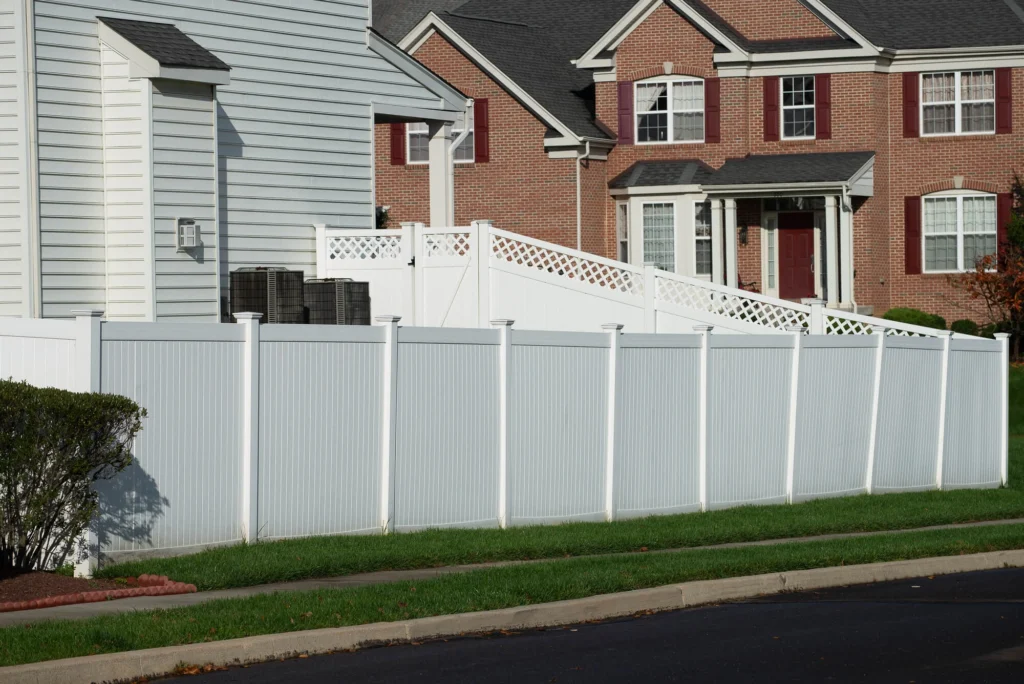
Best Fence Materials for South Florida Homes
Now that we’ve covered the environmental stressors, let’s examine which fencing materials perform best under these conditions.
Aluminum Fencing
Aluminum is ideal for coastal Florida homes because it is lightweight, rust-resistant, and strong enough for security. Powder-coated finishes add durability and a polished look. Aluminum doesn’t warp, rot, or fade easily, and it can be designed in modern or traditional styles.
Ideal for: Homeowners are seeking low maintenance, elegant design, and strong weather performance.
Vinyl Fencing
Vinyl (or PVC) fences are popular in suburban areas thanks to their durability and clean look. They resist moisture, don’t rot, and can handle direct sun with the right UV inhibitors.
Tip: Make sure the vinyl is rated for high UV exposure and that panels are reinforced.
Ideal for: Those who want privacy fencing with minimal upkeep and a long-lasting finish.
Pressure-Treated Timber
Wood remains a timeless choice, especially for rustic or natural aesthetics. In South Florida, however, only pressure-treated or rot-resistant woods like cedar or cypress are reliable. Maintenance is non-negotiable, and sealing and staining are key.
Ideal for: Homeowners who love the look of wood and are willing to maintain it.
Chain Link Fencing with Coating
Chain link fencing isn’t just for industrial properties—it’s practical and affordable. Consider options with black vinyl coating for residential use, which adds protection and improves appearance.
Ideal for: Backyards, pet areas, or locations where visibility and airflow are priorities.
Signs Your Fence Might Be Suffering from Climate Stress
Even the best materials need regular checks. Catching problems early can save you time and money.
Look out for:
- Warped or cracked wood panels
- Discoloration or chalking on vinyl
- Rust stains around metal joints or fasteners
- Leaning posts or loose panels
- Algae or mildew buildup, especially near the base
Don’t ignore these signs. If you’re searching for a fencing company to inspect or repair the damage, act sooner rather than later, especially before hurricane season.
Maintenance Tips to Extend Fence Life in Florida
Regular care keeps your fence looking sharp and structurally sound. Here’s a simple maintenance checklist:
- Wash your fence quarterly – Use mild soap and water or a pressure washer on a low setting.
- Inspect after storms – Check for loosened panels, posts, or debris damage.
- Trim vegetation – Shrubs and vines can trap moisture and speed up decay.
- Seal or repaint annually (for wood) – This is non-negotiable if you want to avoid rot or insect issues.
- Rinse salt-exposed fences – A simple hose rinse helps prevent corrosion near the coast.
Want less hands-on work? Ask your fencing provider about low-maintenance materials and pre-finished designs.
Why Work with a Local Fence Installer?
Choosing a local contractor familiar with South Florida’s specific climate means getting a fence built to last. Local installers:
- Understand municipal codes and coastal restrictions
- Know which materials hold up best here
- Can recommend fence designs that handle wind, sun, and moisture
- Offer faster support if you need repairs or upgrades
When searching for a fencing company, you’re not just looking for any provider but someone who knows what your fence is up against.
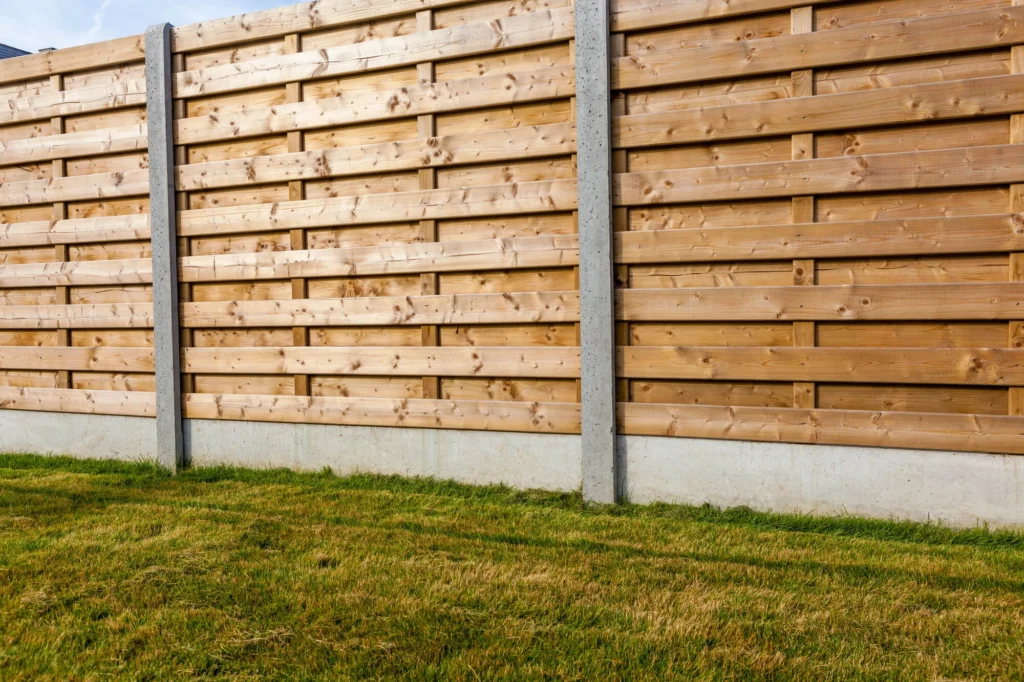
Looking for a Reliable Fencing Company Near You?
South Florida’s weather is beautiful but can be unforgiving in terms of outdoor structures. UV exposure, moisture, salt, wind, and shifting soil all add up over time. The good news? With smart material choices, regular upkeep, and a team that understands the local environment, your fence can stand strong for years.
Need help deciding what works for your home or business? Contact Budget Fence and Gate Systems. We’ve helped thousands of property owners across Palm Beach, Martin, and Broward counties since 1950. Whether you need a brand-new installation, a repair, or just honest advice, we’re here for it. Book an appointment today!
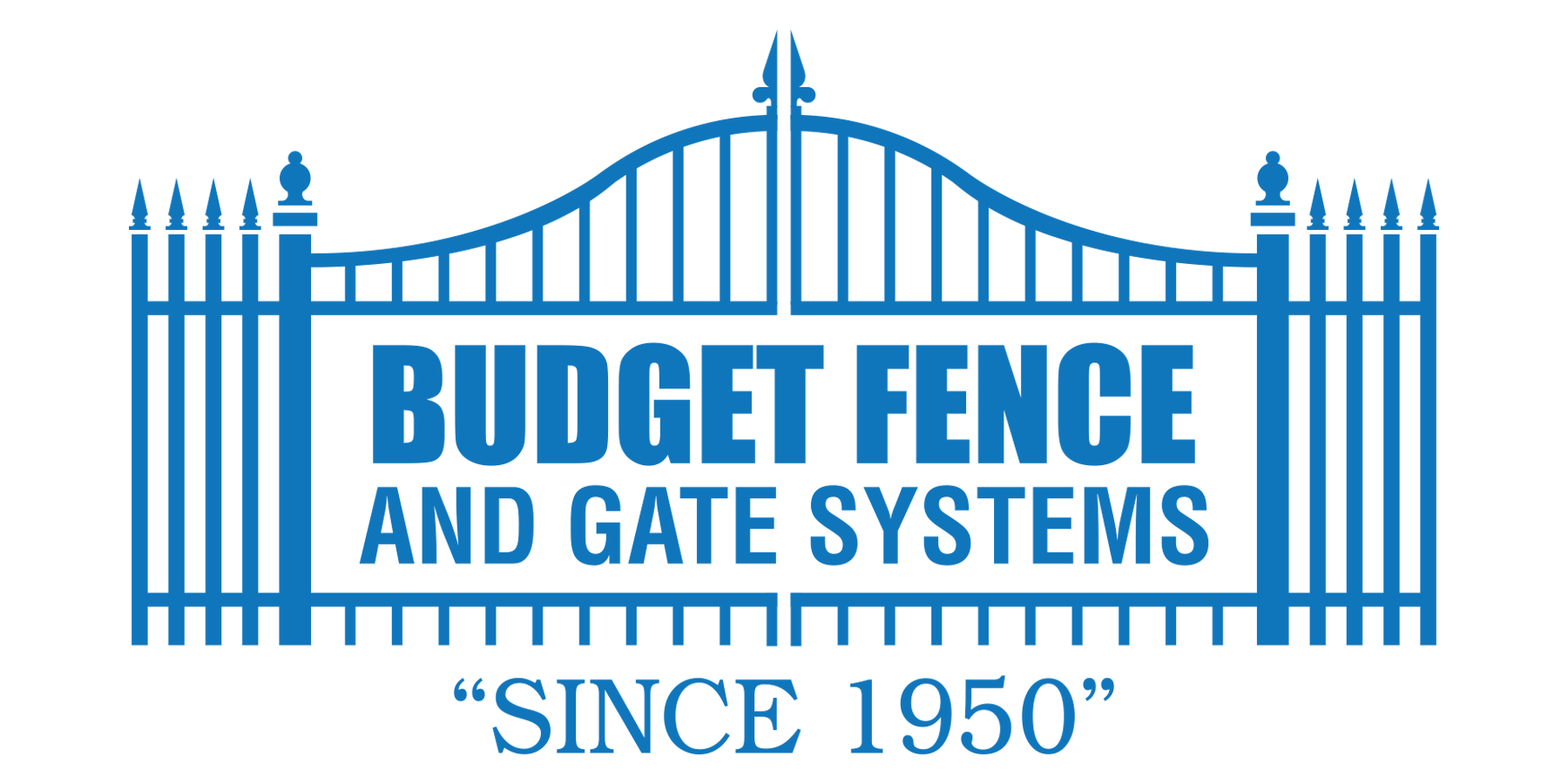
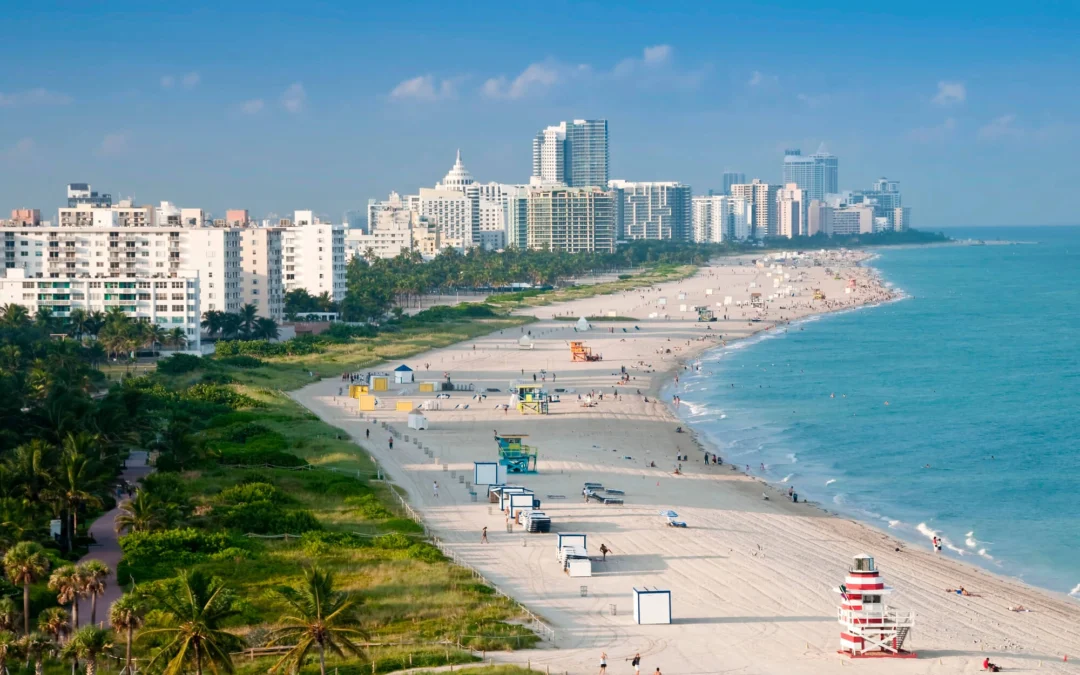
Recent Comments